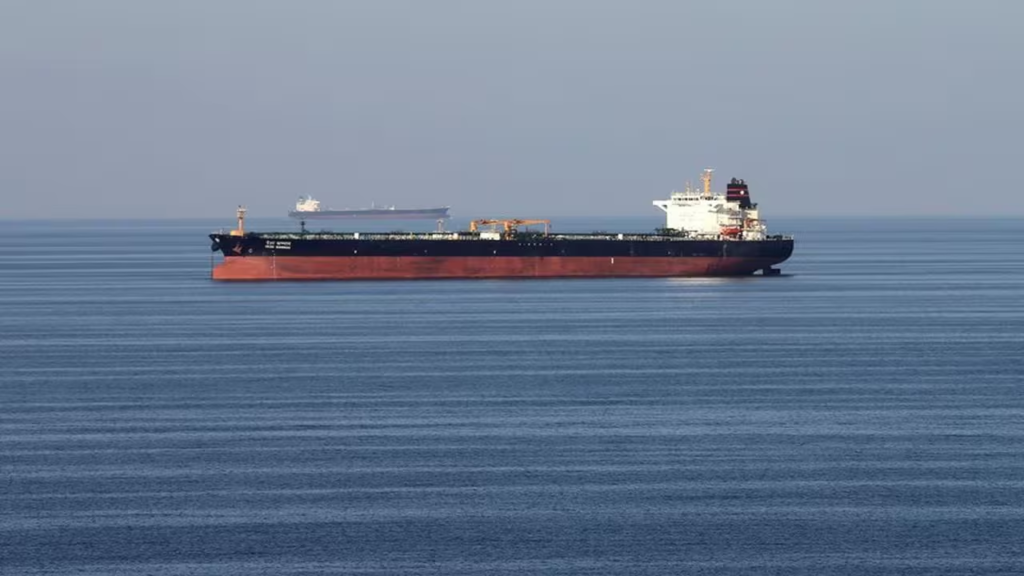Qatar advises caution for LNG vessels using Hormuz Strait following rising regional tensions and potential threats to maritime security. This alert comes as one of the world’s largest liquefied natural gas (LNG) exporters takes steps to protect its strategic shipping routes.
The Hormuz Strait, a narrow waterway between the Persian Gulf and the Gulf of Oman, plays a critical role in the global energy supply. Roughly one-fifth of the world’s total oil and a significant portion of LNG pass through this passage. For Qatar, which exports more than 80 million tons of LNG annually, the security of this strait is vital to its economy and the global energy market.
Why Qatar Is Warning LNG Vessels Now

Qatar’s latest advisory follows a series of maritime incidents involving commercial vessels in or near the Hormuz Strait. Increased military activity and reported interference with merchant vessels have raised alarm. In response, Qatari officials have advised LNG vessel operators and maritime agencies to take extra precautions when navigating through the area.
The advisory does not indicate immediate disruptions in LNG transport, but it strongly urges operators to stay alert, follow international security protocols, and remain updated on regional developments.
5 Reasons Behind Qatar’s Maritime Security Alert
- Increased Regional Tensions
Political disputes and territorial claims in the region have led to naval buildups and strategic maneuvering. This raises the risk of accidental or intentional maritime confrontations. - Recent Attacks on Commercial Vessels
Several incidents involving tankers and cargo ships, including cases of harassment, boarding, or drone threats, have occurred in recent months. These incidents are not directly linked to Qatar’s fleet, but the pattern raises concerns for LNG carriers. - Threat to Global Energy Stability
As one of the key chokepoints in global trade, any disruption in the Strait of Hormuz could destabilize LNG prices and supply chains. Qatar, being a major LNG supplier, is particularly vulnerable to these risks. - Insurance and Operational Costs Are Rising
The maritime insurance premiums for vessels passing through the Hormuz Strait have increased due to rising risk levels. Qatar’s advisory is partly a proactive effort to help reduce exposure to these costs by encouraging preventive actions. - International Maritime Warnings and Security Bulletins
Global organizations, such as the International Maritime Organization (IMO), have issued multiple advisories regarding the security status of the region. Qatar’s alert aligns with these bulletins and adds a national layer of precaution for its LNG fleet.
Implications for Global LNG Market
The caution from Qatar could influence how other energy-exporting countries and global shipping firms respond to security conditions in the Gulf. While Qatar has not halted any shipments, energy traders are watching the situation closely.
Any severe disruption or conflict in the strait could spike global gas prices. LNG spot markets, already sensitive to supply chain shifts due to the ongoing energy transition and geopolitical changes, may see added volatility.
QatarEnergy, the state-owned energy company, has not announced any change in delivery schedules. However, it has confirmed that the company is working closely with maritime agencies and naval escorts to ensure safe passage of LNG tankers.
Security Measures Advised for LNG Vessels
The Qatari Ministry of Transport issued specific operational guidance for LNG vessel operators, including:
- Avoiding night transit through high-risk zones.
- Staying in constant communication with maritime security centers.
- Updating crew on latest threat intelligence.
- Cooperating with coalition naval forces operating in the region.
- Enhancing onboard security systems.
The advisory also includes technical guidance for captains and shipping firms, emphasizing route flexibility and readiness for emergency maneuvers.
Global Reactions to Qatar’s LNG Advisory

International shipping bodies have expressed support for Qatar’s proactive communication. Several LNG buyers in Asia and Europe have reached out to their Qatari partners to confirm shipping plans and assess risk levels.
Industry experts believe Qatar’s move sets a precedent in the energy trade sector. Rather than waiting for an incident, the country is trying to reduce exposure and prepare its LNG network against potential threats.
The United States and its allies have long maintained naval presence in the Gulf to ensure the freedom of navigation. With Qatar’s advisory now aligning with Western concerns about maritime security, increased international coordination is likely in the coming weeks.
Looking Ahead: Caution Without Panic
Qatar advises caution for LNG vessels using Hormuz Strait, but the current situation does not reflect an immediate crisis. Instead, it’s a strategic alert to prevent panic and reinforce awareness. The message is clear: security is a shared responsibility between exporting countries, vessel operators, and international regulators.
The energy market is expected to monitor developments closely. Qatar’s position as a leading LNG supplier means any change in its shipping patterns will ripple through global markets. However, with robust planning and secure maritime coordination, the risk can be managed effectively.
Conclusion
Qatar’s advisory about LNG vessels in the Hormuz Strait is both a warning and a strategic signal to the world. While there is no direct threat to LNG shipments at the moment, the region’s instability makes caution essential. As geopolitical tensions evolve, countries like Qatar are taking the lead in protecting not just their economic interests, but also the stability of the global energy supply chain.
Also Read – Barzan University College Launches 5 Powerful Tech Education Plans



